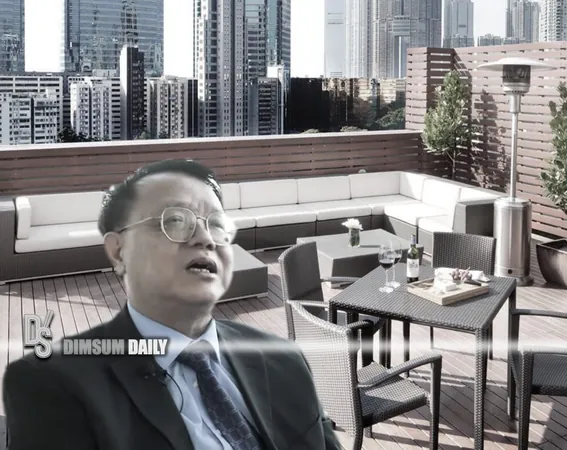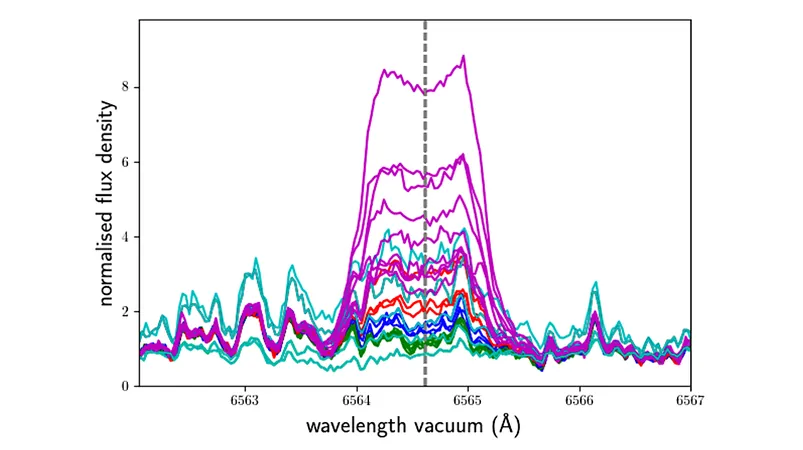
Experts Predict Shocking 75% Crash in Hong Kong Property Market
2025-03-31
Author: Wei
Economic Downturn and Property Market Collapse
As of March 31, 2025, the Hong Kong property market is plunging to alarming new lows, with recent data from the Rating and Valuation Department revealing a 0.87% drop in the private residential price index for February. This marks the lowest point the market has seen in over eight and a half years. Dr. Yip Sau-leung, an economist at Chinese University of Hong Kong, has sounded the alarm, suggesting that the ongoing real estate bubble is on the verge of bursting, leading to potential price declines of 60% to 75%.
Recommendations for Stability
In a bid to avoid a repeat of the negative equity crisis reminiscent of past downturns, Dr. Yip has urged for the stability of financial institutions. He recommends that the Hong Kong Monetary Authority (HKMA) conduct thorough stress tests to ensure banks can withstand this turbulent time. Additionally, he has proposed that the government shifts its focus to the development of "sandwich-class" housing—properties priced between public housing and private market rates—as a strategy to improve residents' living standards while helping to alleviate fiscal deficits and promote social stability.
Projected Declines and Economic Risks
Current economic indicators suggest that property values could plummet cumulatively by 60% to 75%. While prices have already decreased by 30% to 40%, Dr. Yip foresees a vicious cycle leading to job losses, business closures, and a wave of distress sales as many owners may be forced to offload their properties at a loss. This scenario presents significant risks for banks, reminiscent of similar crises in other regions where real estate bubbles have burst.
The Reality of Market Corrections
Dr. Yip also explained that following an astonishing 250% surge in property prices, a typical correction should have entailed a 45% to 50% reduction. However, he believes the reality will be far worse, with declines likely to reach between 60% and 75%. The second-hand property market is already seeing steep discounts as developers, grappling with financial pressures, are forced to slash prices. This trend is expected to intensify due to rising interest rates and mounting pressure from banks.
Call for Government Action
To prevent a hard economic landing, Dr. Yip insists that maintaining bank stability is paramount. He emphasizes the urgent need for the government to accelerate the construction of sandwich-class housing and to conduct comprehensive financial assessments to maximize revenue potential, thereby curbing budget deficits. He warns that the reliance on fluctuating land sale revenues could jeopardize the government’s future fiscal health.
Comparisons with Singapore
In a bold comparison, Dr. Yip claims that Hong Kong could outshine Singapore by implementing the Sandwich Class Housing Scheme (SCHS). He argues that citizens would likely prefer to invest in higher-quality sandwich-class homes priced at approximately HK$2.8 million rather than settling for public housing at HK$1.8 million. Not only does the former option promise a better quality of life, but it also enhances residents' social status.
Conclusion and Future Outlook
As the situation develops, all eyes will be on the Hong Kong property market, with uncertainties looming large. Will policymakers heed the warnings, or is a daunting decline already written in the stars? Stay tuned for ongoing updates on this evolving economic narrative!




 Brasil (PT)
Brasil (PT)
 Canada (EN)
Canada (EN)
 Chile (ES)
Chile (ES)
 Česko (CS)
Česko (CS)
 대한민국 (KO)
대한민국 (KO)
 España (ES)
España (ES)
 France (FR)
France (FR)
 Hong Kong (EN)
Hong Kong (EN)
 Italia (IT)
Italia (IT)
 日本 (JA)
日本 (JA)
 Magyarország (HU)
Magyarország (HU)
 Norge (NO)
Norge (NO)
 Polska (PL)
Polska (PL)
 Schweiz (DE)
Schweiz (DE)
 Singapore (EN)
Singapore (EN)
 Sverige (SV)
Sverige (SV)
 Suomi (FI)
Suomi (FI)
 Türkiye (TR)
Türkiye (TR)
 الإمارات العربية المتحدة (AR)
الإمارات العربية المتحدة (AR)